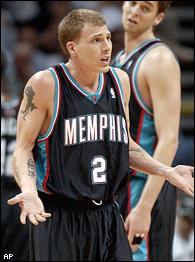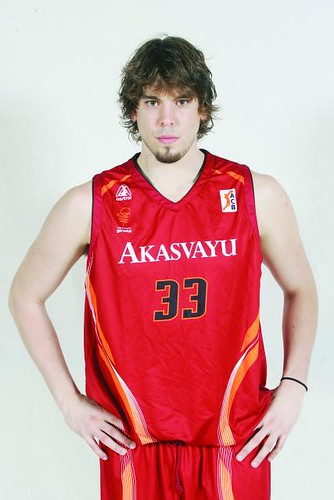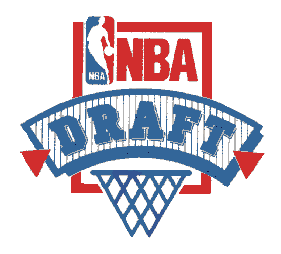 If you haven't already read the column that Yahoo! Sports' Adrian Wojnarowski posted yesterday, then read it here. Yesterday, I read the article and I heard him on 730 ESPN with Chris Vernon. I have to say that my initial impression was quite simple: hatchet job. Now that I've had time to sleep on it and allow it to rattle around my head, my viewpoint hasn't changed one iota.
If you haven't already read the column that Yahoo! Sports' Adrian Wojnarowski posted yesterday, then read it here. Yesterday, I read the article and I heard him on 730 ESPN with Chris Vernon. I have to say that my initial impression was quite simple: hatchet job. Now that I've had time to sleep on it and allow it to rattle around my head, my viewpoint hasn't changed one iota.
I know that the Pau Gasol trade has been the running joke of the NBA world all spring, with Kobe calling it "a donation", Gregg Popovich calling it "beyond comprehension" and everyone else saying that Grizzlies GM Chris Wallace should be named the Lakers' team MVP. I understand that many fans were upset about what was accepted in return for the gifted 7-footer and that most of them continue to be irked about it. However, it seems that many people have forgotten to examine their history books when they label it "one of the NBA’s worst trades in years", as Wojnarowski does in his column. He states that "you don’t trade your franchise player without getting back a minimum of a sure-thing young star and/or two solid young starters". Oh really?
February 24, 2005: The Golden State Warriors acquired guard Baron Davis from the New Orleans Hornets on Thursday for guard Speedy Claxton and forward Dale Davis.
December 18, 2004: Vince Carter was traded by the Toronto Raptors to the New Jersey Nets for Alonzo Mourning, Eric Williams, Aaron Williams and a pair of first-round draft picks.
August 19, 2003: The Dallas Mavericks finally made a major offseason move, acquiring Antawn Jamison in a nine-player trade with the Golden State Warriors. The Mavericks also got guard Jiri Welsch and forwards Danny Fortson and Chris Mills from the Warriors for guards Nick Van Exel, Avery Johnson and Antoine Rigaudeau, center Evan Eschmeyer and forward Popeye Jones in the deal.
June 17, 1992: Charles Barkley was traded to the Phoenix Suns from the Philadelphia 76ers for Jeff Hornacek, Andrew Lang, and Tim Perry.
I think I've made my point, haven't I? I'm confident in saying that the Sixers, Warriors, Hornets and Raptors not only bounced back from those seemingly one-sided trades, but actually became better teams down the road because of the trade. So now that I've shown evidence that you cannot judge a trade in just a matter of a few months, how about we take a closer look at the rest of this column, shall we?
The title of it was quite eye-catching: Memphis owner now questions value of Gasol deal. I mean, that's sure to set tongues to wagging and drive traffic, isn't it? I wonder what exactly it was that Wojnarowski got in his 15-minute interview by cell phone (cut short by his own admission) that we were unable to glean in talking to Michael Heisley face-to-face for over 90 minutes? After all, we have Heisley's words out there for everyone to see in five parts (Part 1, Part 2, Part 3, Part 4, Part 5), where he describes quite clearly why the Gasol trade went down the way it did. But Wojnarowski has this quote that makes things less clear:
“I don’t know if I got the most value,” Heisley confessed. “Maybe our people should’ve shopped (Gasol) more and maybe we would’ve gotten more, done a better deal. Maybe Chris did call every team in the league. I don’t think he did, but maybe he should’ve…”
Yes, maybe Wallace should have called every team in the league. I mean, it's not like Pau Gasol had been surrounded by trade rumors for over a year since the word of his closed door meeting with Heisley was leaked out to the press and then categorically labeled a "trade demand". Sure, Chicago had seemed to be the most logical destination, given their outstanding need for a low-post presence. But if a team had interest in acquiring the Spaniard, wouldn't their GM have at least made a perfunctory phone call to see what Wallace might have been willing to accept? Doesn't that seem logical?
Well of course it bloody well does! But -- after none of them made an offer that would give the Grizzlies a young star in the making, they went for the next best thing: cap relief and draft picks - the staple of a rebuilding effort. The offer that the Bulls allegedly made (Nocioni, Thomas, Noah, Sefolosha and Griffin) would have put the Grizzlies back into position of being marginally talented, which is good enough for a few years' worth of first round exits in the Western Conference. With the deal that was accepted, the Grizzlies have the opportunity to start over from the ground floor up, as the Raptors, Hornets and Warriors did before them. I'm sick and tired of having to explain this over and over and over to people whose vision and scope stops at the end of their own nose. You cannot judge a trade after 4 months -- especially if future draft picks are involved -- and you cannot judge a draft class after only one season. Proper, informed evaluations take time -- which is lost on everyone in this "instant history" day and age.
The crux of my objection to Adrian Wojnarowski's column is that I feel he is misrepresenting his writing. This appears to me as though it is an opinion-based column posing as an interview. He uses only 6 direct quotes in an 1100+ word column by my count. The rest is his opinion and conjecture. To wit:
When much of the league was determined to make a serious bid for the 7-footer, how could Memphis settle so long before the February trade deadline for such a paltry offer out of the Lakers?
For the first time, even Heisley wondered whether his general manager, Chris Wallace, blew it by caving so soon to the Lakers.
Crittenton is nothing special...
There isn't one, single fact in the three statements above. There is a lot of opinion though. Wojnarowski has shaped this column to reflect either his own viewpoint or at least that which he feels will drive the most traffic. I have no problem with that from a columnist -- as long as they are clear about their intention to do so. Picking and choosing from quotes, while (in all likelihood) leaving out the parts that don't lend themselves to his goal, only gives media members an even worse reputation. Up until this point, I had always like Adrian Wojnarowski. From now on, I'll be a lot more wary of taking his writing at face value though.

































